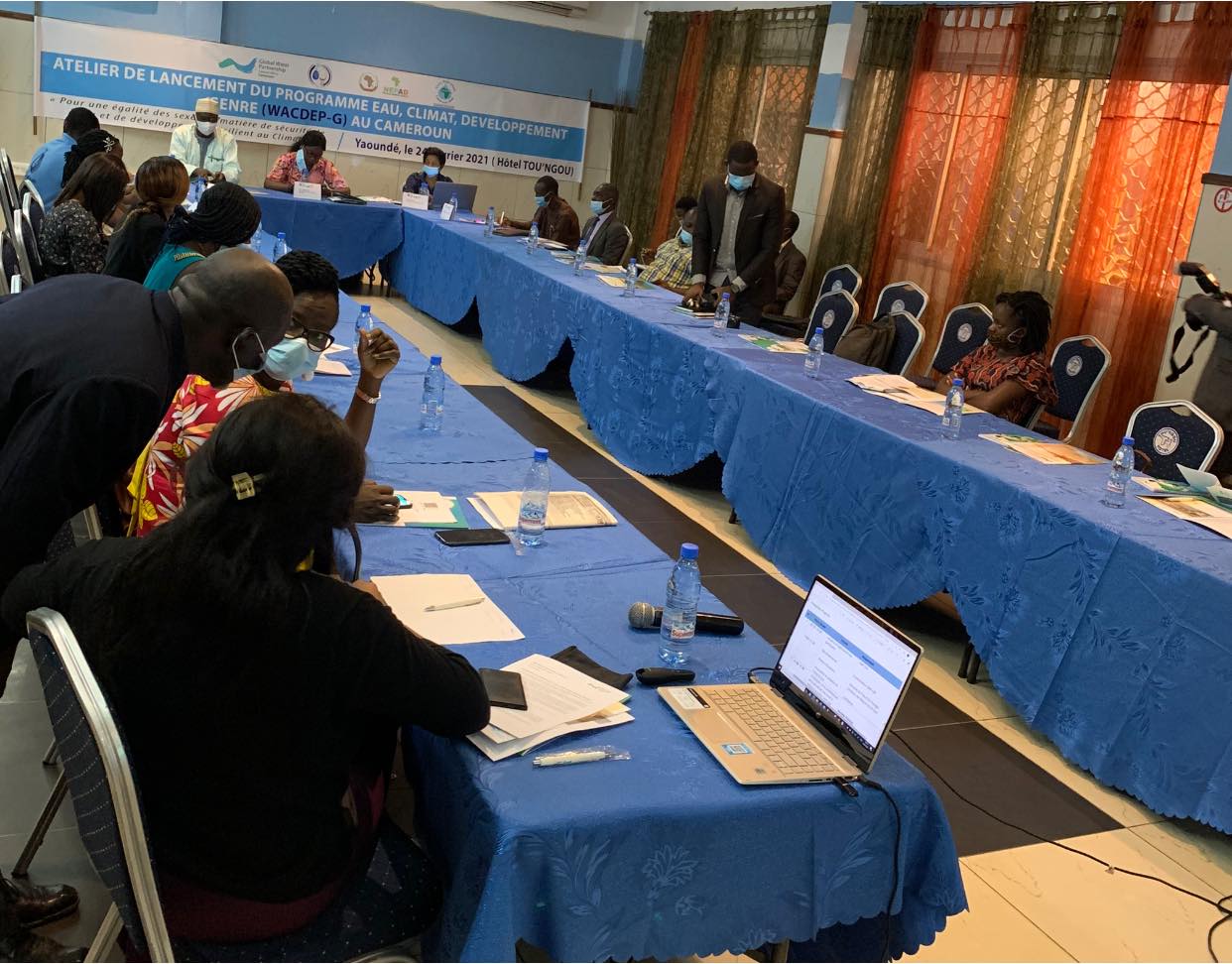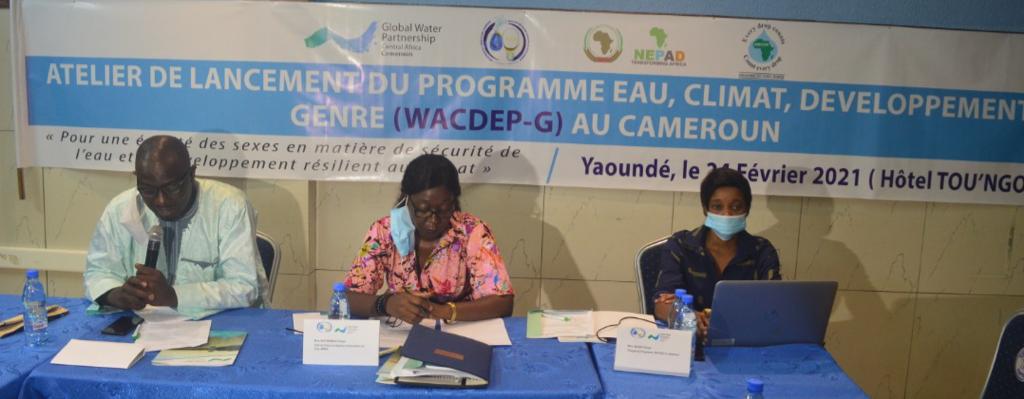The workshop which had as main objective to present the AIP support program to the key stakeholders was also “an opportunity to strengthen stakeholder ownership of the program as well as identify their potential roles in its implementation ” as described by Hycinth BANSEKA, Regional Coordinator, GWP-CAf in his opening speech.
Speaking on the ministry’s decision to be the flag bearer of the program at the government level, Madam Ngo Biemble Pelagie representative of the Minister of Water Resources and Energy said, “WACDEP-G will help Cameroon implement the 3rd Principle of IWRM, which recognizes that women play an important role in planning, conservation and management of water resources - a key objective for the ministry".
Enriching presentations from the WACDEP-G Cameroon Program Coordinator, Murielle ELOUGA helped the over eighteen participants from governmnt ministries, civil society organizations, UN Agencies, NGOs and research institutions
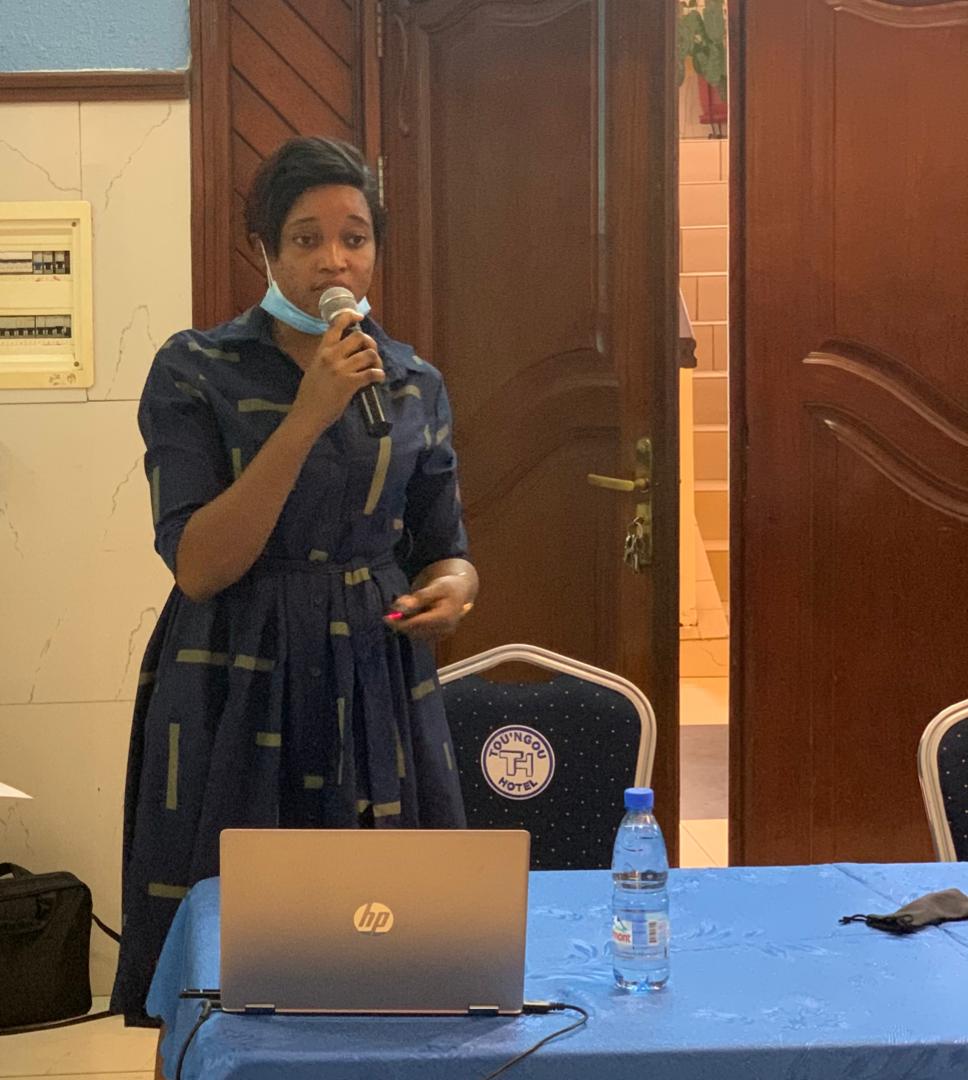 understand the context of the gender-transformative approach, strategy of the WACDEP-G program, and proposed national activities.These presentations gave way to a participative workshop with question-and-answer sessions after each presentation, helping participants deepen their understanding of the program to better make recommendations on the choice and methodology of implementation of the proposed activities as well as identify entry-points for collaboration in the different sectors.
understand the context of the gender-transformative approach, strategy of the WACDEP-G program, and proposed national activities.These presentations gave way to a participative workshop with question-and-answer sessions after each presentation, helping participants deepen their understanding of the program to better make recommendations on the choice and methodology of implementation of the proposed activities as well as identify entry-points for collaboration in the different sectors.
In her presentation on the results of the gender studies initiated by GWP last year in the five WACDEP-G pilot countries , GWP-CAf Gender Expert Henriette Bikie highlighted that Cameroon has made some progress within the gender framework with the presence of the Ministry of Women Empowerment and the Family,
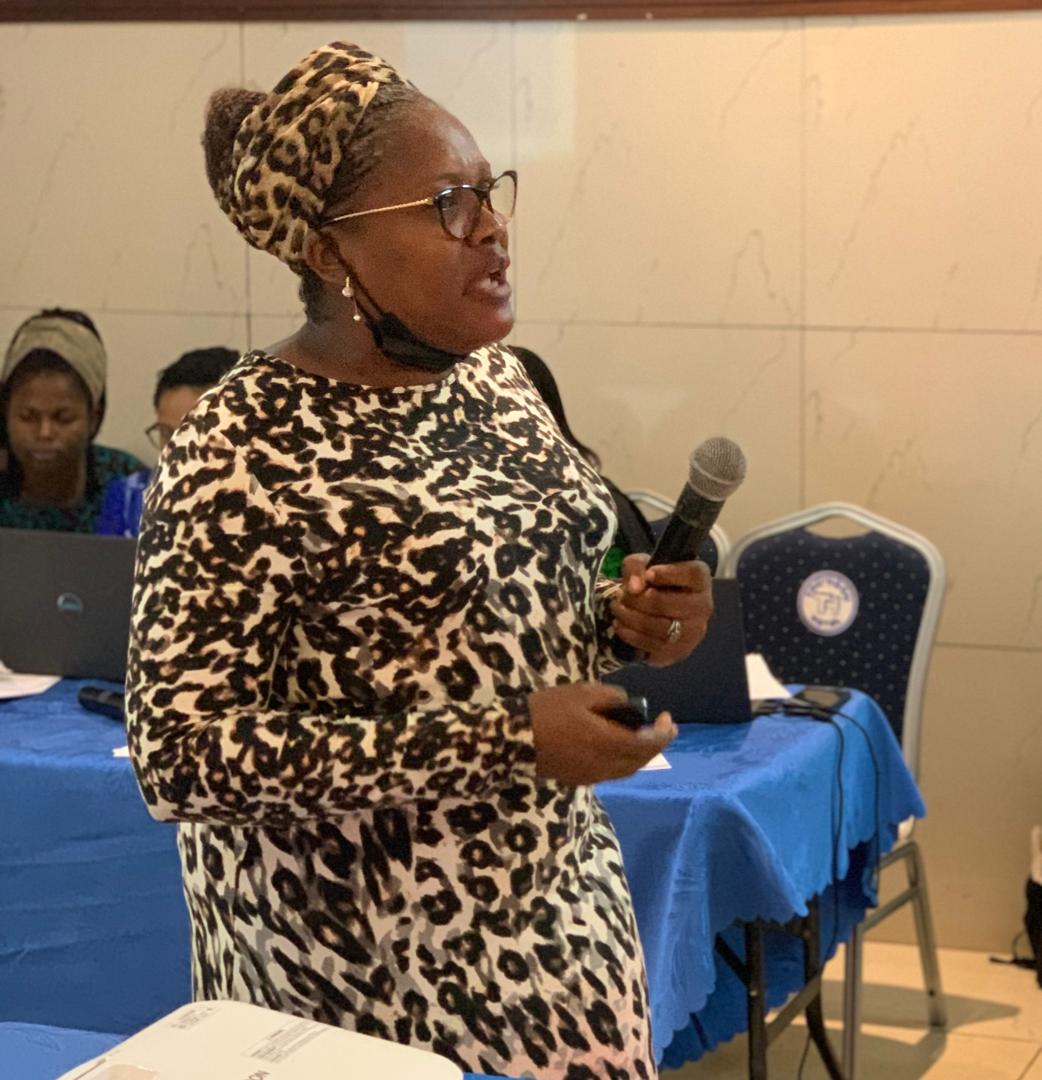
the identification and integration of gender needs in the National Vision 2035 and National Development Strategy 2020-2030 and also the existence of a National Gender Action plan, “however, the sectoral strategies are gender blind and do not address the profound causes of gender inequalities neither do they take into account institutionalizing gender at the policy level as a first solution to addressing these inequalities”
To consolidate the stakeholder contributions, a group session was organized during which participants were to list future and current projects on water, climate, and gender within their institutions to identify possible joint activities. The group session also had as objective to enrich the WACDEP-G work plan by reflecting on the implementation strategy and choice of partners to be involved in each component.
Following group discussions, the participants made these recommendations to the WACDEP-G team;
- Involve Decentralized Territorial Communities (CTDs) in the process of institutionally strengthening decision-making bodies to ensure the implementation of the gender transformative approach (institutional, budget level)
- Include all institutions related to the water and climate sector in the institutional capacity building on the gender transformative approach.
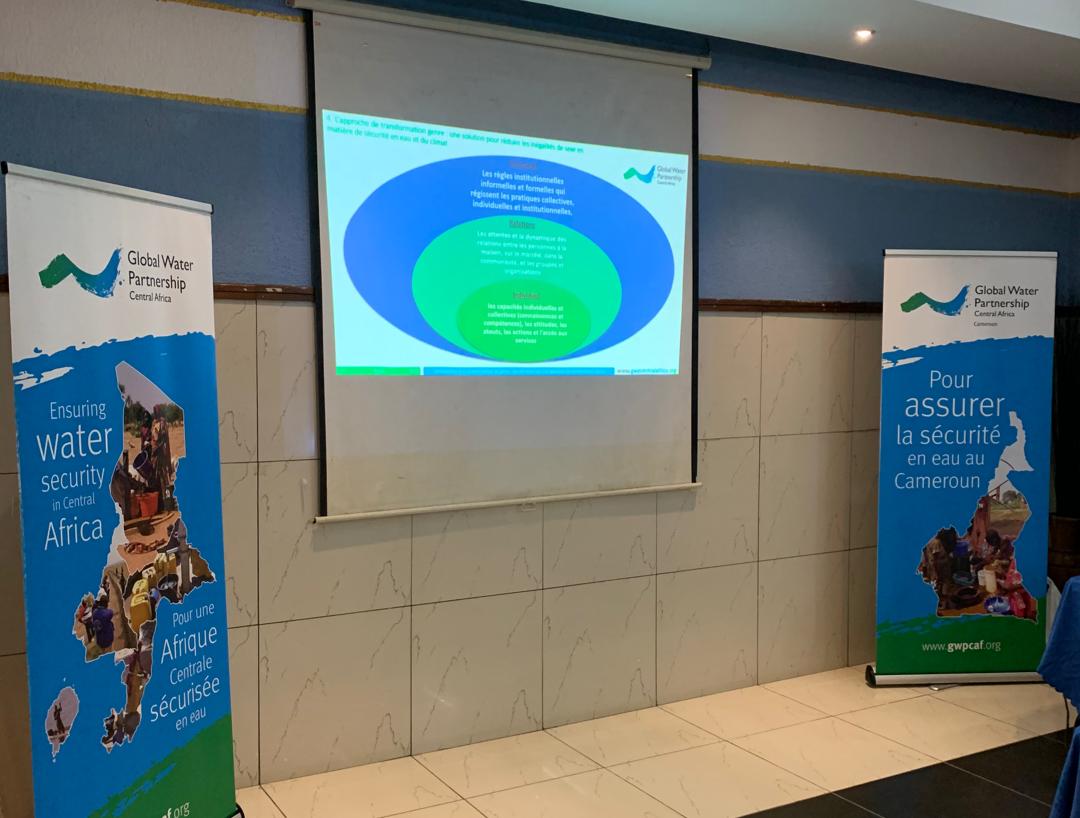
About AIP WACDEP-G
AIP aims to mobilize 30 billion dollars in climate resilient water investments by 2030 across Africa and create 5 bn jobs. The pilot phase of the Africa-wide WACDEP-G program is being implemented in five countries – Benin, Cameroon, Uganda, Zambia and Tunisia and five river basins. Lessons drawn from this pilot phase will expand the program to the remaining 13 countries bringing the total to 18 Countries.
WACDEP-G is implemented by GWP within the context of the organizations’ committment towards achieving gender equality in the water and climate sector. It is implemented with the financial support of the Austrian Development Agency (ADA), Swedish International Development Agency (SIDA) and the Swiss Development Cooperation (SDC).
AIP was recently adopted by the Assembly of the African Union Heads of State and Government as part of Programme for Infrastructure Development in Africa – Priority Action Plan 2 (PIDA-PAP 2)
